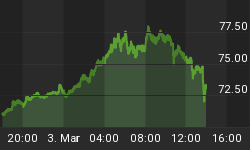The boys on CNBC were back at it again on Tuesday. The cheerleading anchors couldn't wait to start the year off on a high note for the equity markets. After all, there is speculation that we are nearing the end of the Fed rate hike cycle which equates to nothing but blue skies ahead for equity markets. In addition, real estate has cooled off which means that mom and pop may choose to reallocate their savings to stocks rather than investment properties. Finally, stocks haven't moved anywhere in two years, so it is only logical that they should be ready to take off again. Ahh, optimism is in the air!
Let's break down these assumptions one by one:
Rates - Allowing mild inflation (loose monetary policy) is always more politically acceptable than credit-crunching deflation (tight monetary policy). So in the short run, it is very possible that the Fed will stop hiking or even start cutting should the economy slow. This is the consensus view on Wall Street and we think it is a reasonable one. In the long run, however, we see rates reverting back to their mean, which on the 10-yr is approximately 7% since 1960 - this not good for overpriced stocks and bonds.
Real Estate - The notion that real estate has moderated is balderdash. If an overvalued sector becomes more overvalued but at a slower rate, it still is a bubble. Mom and pop will not pull out of real estate until we start to see meaningful depreciation in property prices nationwide. Yes, Miami, Las Vegas, California and New York are all out of control, but a true real estate slowdown will affect prices in every region.
Stocks - The market, which trades at a trailing P/E of 18x (20-40x for many techs and small caps), is not cheap on a historical basis. If the economy is at the end of the expansion cycle (as the yield curve predicts) then earnings will not see meaningful increases anytime soon.
One topic that seems to have been forgotten is the decline of the U.S. Dollar. While the greenback staged a moderate (10%+) recovery in 2005, it is still nowhere close to its highs versus the Euro & Yen. The Dollar did well in 2005 for a number of reasons, but two critical factors were the relative short-term interest rate differential and the American Jobs Creation Act, which encouraged multinational corporations to repatriate overseas cash into Dollars before year end. With rate hikes ending and the AJCA expiring, the U.S. Dollar should begin to resume its downfall. The greenback's fundamentals have gotten a lot worse over the last twelve months as both the U.S. trade and current account deficit have soared to record levels.
We think 2006 will be the year that the average investor wakes up to the U.S. Dollar's vulnerability and begins to use gold & silver as a way to protect his savings. The Euro & Yen have proven their fallibilities as hedges. Gold is now available to be purchased through two ETFs (tickers: GLD & IAU) with silver about to join.
















